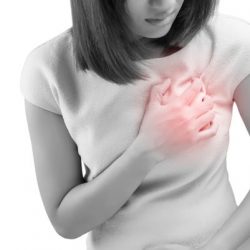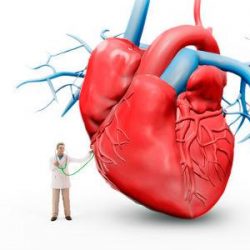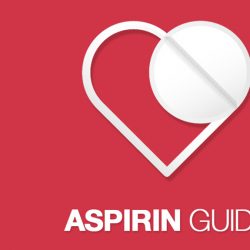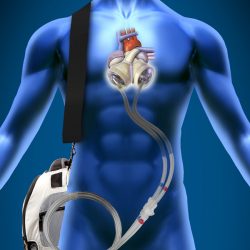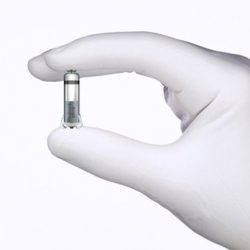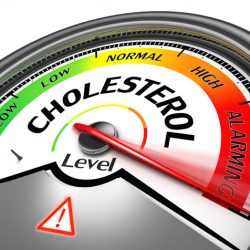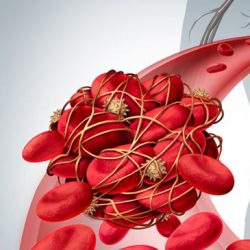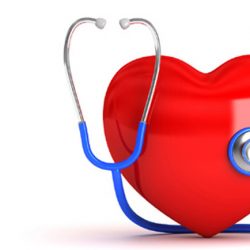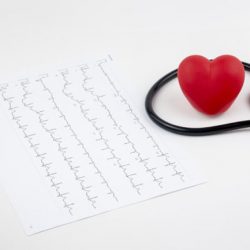During a heart attack, clots or narrowed arteries block blood flow, harming or killing cells within the tissue. But the damage doesn't end after the crushing pain subsides. Instead, the heart's walls thin out, the organ becomes enlarged, and scar tissue forms. If nothing is done, the patient can eventually experience heart failure. But scientists now report they have developed … [Read more...]
Cardiovascular Health

Sedentary Lifestyle Increases Risk Of Heart Disease
Being sedentary is not just a lack of exercise, it is a potentially independent risk factor for heart disease and stroke, according to a science advisory from the American Heart Association. "Regardless of how much physical activity someone gets, prolonged sedentary time could negatively impact the health of your heart and blood vessels," said Deborah Rohm Young, Ph.D., … [Read more...]
Insomnia? Oversleeping? Both May Increase Your Risk Of Stroke
There is growing evidence that sleep disorders like insomnia and sleep apnea are related to stroke risk and recovery from stroke, according to a recent literature review. Based on the review, the authors recommend that people who have had a stroke or a mini-stroke, called a transient ischemic attack, be screened for sleep disorders. "Although sleep disorders are common … [Read more...]
Aerobics: Key to Reduce the Risk of Heart Failure
Aerobic exercise training restored the cardiac protein quality control system in rats showed a study recently published in Journal of Cellular and Molecular Medicine. More than 20 million people worldwide are estimated to have heart failure and this situation will get worse since the prevalence of heart failure will rise as the mean age of the population increases. The results … [Read more...]
Are we giving up on cardiac arrest patients too soon?
Physicians may be drawing conclusions too soon about survival outcomes of patients who suffered a cardiac arrest outside the hospital. A study led by Bentley Bobrow, MD, professor at the University of Arizona Colleges of Medicine in Tucson and Phoenix and co-director of the Arizona Emergency Medicine Research Center -- Phoenix, and his fellow UA emergency medicine … [Read more...]
Butter Does Not Lead To Chronic Diseases
Butter consumption was only weakly associated with total mortality, not associated with cardiovascular disease, and slightly inversely associated (protective) with diabetes, according to a new epidemiological study which analyzed the association of butter consumption with chronic disease and all-cause mortality. This systematic review and meta-analysis, published in PLOS ONE, … [Read more...]
Omega-3s leads to lower risk of fatal heart disease
Blood levels of seafood and plant-based omega-3 fatty acids are moderately associated with a lower risk of dying from heart attacks, according to a new epidemiological study, published in JAMA Internal Medicine, led by Liana C. Del Gobbo, Ph.D., a postdoctoral research fellow in the division of cardiovascular medicine at Stanford University School of Medicine and senior author … [Read more...]
‘Virtual Heart’ to model heart failure: A PLOS Study
A team of researchers have created a detailed computational model of the electrophysiology of congestive heart failure, a leading cause of death. This "virtual heart" could help medical researchers study new drug therapies -- according to the study published in PLOS Computational Biology. Researchers from the University of California created a model that can simulate … [Read more...]
New insights on causes of sudden cardiac death in the young
Genetic testing has shed new light on the deaths of nearly 500 young Australians and New Zealanders who died from sudden cardiac death in a 3-year period, the New England Journal of Medicine reports today. "Sudden cardiac death in children and young adults has a devastating impact on families, care providers and the community," says the University of Sydney's Professor … [Read more...]
Eliminating blood test may increase availability of donor hearts
A blood test that leads to the rejection of donor hearts may be unnecessary in predicting whether a heart transplant will succeed or fail, according to new research in Circulation: Heart Failure, an American Heart Association journal. "Heart transplantation is an incredible therapy for patients with end-stage heart failure, but there are only 2,000-2,400 transplants … [Read more...]
‘Aspirin-Guide’ app for clinicians helps personalize decisions
Low dose aspirin is recommended by clinicians as a preventive measure for patients who have already had a heart attack or stroke, but the risk of taking low-dose aspirin to prevent or delay a first heart attack or stroke is less clear, as the benefit for reducing the risk of cardiovascular disease (CVD) must be balanced with the increased risk of gastrointestinal or other … [Read more...]
Good News: Coronary heart disease decreases in the US
Coronary heart disease (CHD) is one of the major causes of death in the United States. A new study evaluating recent trends in the prevalence of CHD in the U.S. population aged 40 years and older showed that CHD rates have decreased significantly, from 10.3% in 2001-2002 to 8.0% in 2011-2012. Much of the morbidity and mortality of CHD, encompassing angina, myocardial … [Read more...]
New therapy options bring about changes in stroke care
There are more well-founded therapy options for the treatment of strokes than ever before. Care has to be reorganised before these innovations are actually used on patients. At the Congress of the European Academy of Neurology in Copenhagen, experts are discussing just how to do that successfully - from guidelines for the use of thrombectomy procedures all the way to the … [Read more...]
Congenital Heart Disease: Today’s Warriors Survive!
About one in every 100 babies born today comes into the world with a heart defect. Just a generation ago, many of these babies would never make it to adulthood, but today, over 85 percent do, and currently there are over 1.2 million American adults who are living and thriving with congenital heart disease, leading to a whole new medical specialty. Every day, her scar reminds … [Read more...]
Holding Your Heart in Your Hand
Five million Americans have heart failure, which can lead to heart attacks. It is also the cause of death for one out of nine people. Now, a one-of-a-kind program is motivating people to engage in heart-healthy activities and helping them cherish a second chance at life. Kenneth Arnentrout could never run on a treadmill before his heart transplant in 2015. And he could never … [Read more...]
From a heart in a backpack to a heart transplant
All transplant patients are exceptional, but Stan Larkin's successful heart transplant comes after living more than a year without a human heart and relying on a heart device he carried in a backpack. The first patient in Michigan ever discharged with a SynCardia temporary total artificial heart in 2014, Larkin was back at the University of Michigan Frankel Cardiovascular … [Read more...]
World’s smallest pacemaker implanted
Jersey Shore University Medical Center, part of Meridian CardioVascular Network, is the first hospital in New Jersey to implant the Micra® Transcatheter Pacing System (TPS) - the world's smallest pacemaker - since the device gained U.S. Food and Drug Administration (FDA) approval in April 2016. Micra TPS is a new type of heart device that treats patients with bradycardia, a … [Read more...]
Female heart patients less likely to get blood thinning therapy: University of Cincinnati College of Medicine Study
Female atrial fibrillation patients are less likely than their male counterparts to receive blood thinning therapies to prevent stroke, say University of Cincinnati College of Medicine researchers. Researchers noted the sex differences as they reviewed medical therapies for 1,585 patients whose doctors were testing a computerized decision support tool that uses patient … [Read more...]
Low-salt diets may not be beneficial for all, study suggests
A large worldwide study has found that, contrary to popular thought, low-salt diets may not be beneficial and may actually increase the risk of cardiovascular disease (CVD) and death compared to average salt consumption. In fact, the study suggests that the only people who need to worry about reducing sodium in their diet are those with hypertension (high blood pressure) … [Read more...]
Low saturated fat diets don’t curb heart disease risk: A Study
Diets low in saturated fat don't curb heart disease risk or help you live longer, says a leading US cardiovascular research scientist and doctor of pharmacy in an editorial in the open access journal Open Heart. And current dietary advice to replace saturated fats with carbohydrates or omega 6-rich polyunsaturated fats is based on flawed and incomplete data from the 1950s, … [Read more...]
Map the Heart: Stop AFib
Atrial fibrillation, or AFib, is one of the most common heart rhythm disorders. But treatment only works about half the time. Now, that may be about to change, thanks to a new way to diagnose the condition. This is what the human heart looks like when it is out of sync. “It felt like my heart was going to explode. Everything was just racing,” said Bret Story. A … [Read more...]
High cholesterol, triglycerides can keep vitamin E from reaching body tissues: Oregon State University Study
In the continuing debate over how much vitamin E is enough, a new study has found that high levels of blood lipids such as cholesterol and triglycerides can keep this essential micronutrient tied up in the blood stream, and prevent vitamin E from reaching the tissues that need it. The research, just published in the American Journal of Clinical Nutrition, also suggested that … [Read more...]
Genetic risk information for coronary heart disease leads to lower bad cholesterol: A Study
A group of researchers led by Mayo Clinic has discovered that disclosing genetic risk for coronary heart disease (CHD) results in lower low-density lipoprotein cholesterol (LDL), also known as bad cholesterol. The findings of the Myocardial Infarction Genes (MI-GENES) Study were presented today at the annual American Heart Association Scientific Sessions 2015 as a late-breaking … [Read more...]
New way to prevent dangerous blood clots discovered: University of North Carolina Study
For the first time, scientists at the UNC School of Medicine have shown that eliminating the enzyme factor XIII reduces the number of red blood cells trapped in a clot, resulting in a 50 percent reduction in the size of the clot. The finding, featured in the Journal of Clinical Investigation, has major implications for people at high risk of deep vein thrombosis (DVT), a … [Read more...]
Cardiovascular risk tool overestimates actual chance of cardiovascular events: A Study
A widely recommended risk calculator for predicting a person's chance of experiencing a cardiovascular disease event -- such as heart attack, ischemic stroke or dying from coronary artery disease -- has been found to substantially overestimate the actual five-year risk in adults overall and across all sociodemographic subgroups. The study by Kaiser Permanente was published in … [Read more...]
Citrus can ward off your risk of stroke: A French Study
Eating foods that contain vitamin C may reduce your risk of the most common type of hemorrhagic stroke, according to a study released today that will be presented at the American Academy of Neurology's 66th Annual Meeting in Philadelphia, April 26 to May 3, 2014. Vitamin C is found in fruits and vegetables such as oranges, papaya, peppers, broccoli and strawberries. … [Read more...]
Healing the heart with fat: 18-HEPE might help: Rockefeller University Study
Too much dietary fat is bad for the heart, but the right kind of fat keeps the heart healthy, according to a paper published in The Journal of Experimental Medicine. Unsaturated dietary fatty acids, such as eicosapentaenoic acid (EPA), are known to protect against cardiovascular diseases. However, the mechanism and the specific fat metabolites responsible for this protection … [Read more...]
High-salt diet doubles threat of cardiovascular disease in people with diabetes: A Japanese Study
People with Type 2 diabetes who eat a diet high in salt face twice the risk of developing cardiovascular disease as those who consume less sodium, according to a new study published in the Endocrine Society's Journal of Clinical Endocrinology & Metabolism. Diabetes occurs when there is too much sugar in the bloodstream. People develop Type 2 diabetes when their bodies … [Read more...]
Eating chocolate each day could reduce heart disease and diabetes risk: University of Warwick Study
A new study published in the British Journal of Nutrition appears to back up the adage that a little of what you fancy does you good. Including a small amount of chocolate each day could help prevent diabetes and insulin resistance. That's one of the research findings from the Luxembourg Institute of Health (LIH), the University of Warwick Medical School, the University of … [Read more...]
Vitamin A affects the heart: A Study
Vitamin A is involved in many bodily processes, including vision and skin health, but its role in the heart is unclear. While vitamin A is critical for heart development of embryos -- vitamin A deficiency during pregnancy leads to an abnormal heart and prenatal death -- studies on vitamin A's role in heart health have drawn opposite conclusions. A new study published in … [Read more...]
- « Previous Page
- 1
- 2
- 3
- 4
- 5
- 6
- …
- 35
- Next Page »




